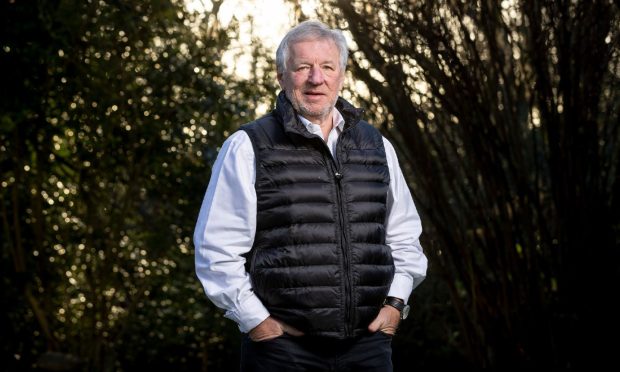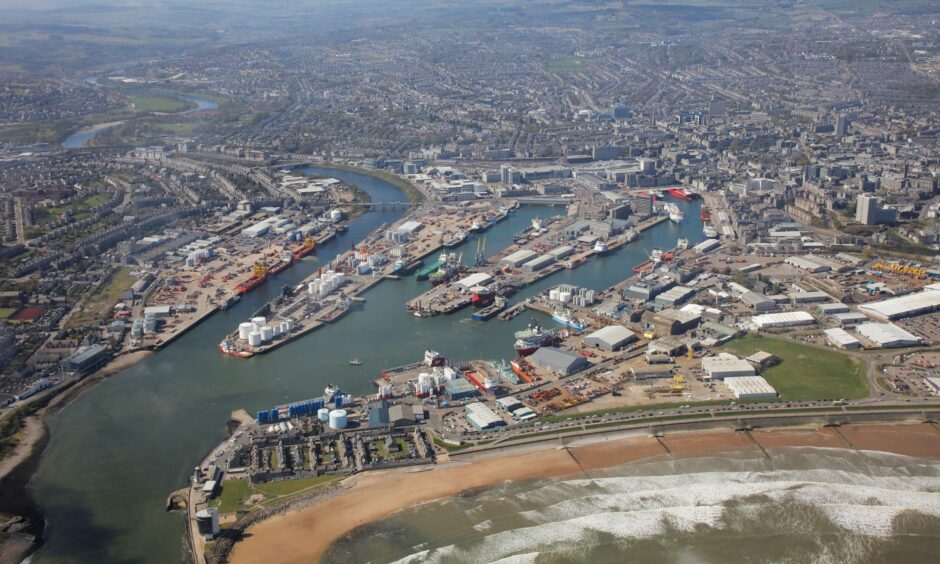Businesses could be forgiven for looking at 2024 with trepidation.
After pandemic lockdown, supply chain disruption, high interest rates, cost inflation, and labour and skills shortages, many entrepreneurs must be asking “what’s going to hit us next?”
There are still many challenges facing business. The EY Scottish Item Club Autumn Forecast reported sentiment among Scottish businesses as “fragile”, due to persistent high interest rates and above-target inflation.
The Bank of England recently signalled that interest rates will not fall any time soon.
Despite headwinds, Scotland’s economy forecast to grow in 2024
On the other hand, the Item Club forecast also predicted Scottish GVA (the gross value added measue of economic growth) to rise by 0.3% in 2024 as inflation eases, real incomes increase and interest rates eventually start to fall.
The information and communications sector, and business services are expected to lead the way. In 2025 it forecasts Scottish GVA will rise by 1.3%, increasing to 1.5% in 2026.
Region’s construction industry must be ready for AI tsunami
And recently published research by the Bank of Scotland showed business confidence in Scotland rose by 15 points in November, to 41%.
Business rates are, however, a concern. The Scottish Retail Consortium and Federation of Small Businesses have urged the Scottish government to freeze the headline poundage rate for 2024 since, if the rate is increased in line with the September inflation figure of 6.7%, companies in Scotland will pay £205 million more.
Managing energy transition ‘crucial’ for north-east
Crucial to the future of our economy here in the north-east is the handling of the transition from oil and gas to renewable energy. We’ve recently had an insight into that future at COP28, held in Dubai.
Also crucial will be attracting and retaining talent. Following the recent Scottish Budget, business leaders warned its measures may hamper growth.
Scottish Financial Enterprise chief executive Sandy Begbie said they were “likely to inhibit our ability to create jobs and attract and retain the talent our economy and society needs”.
Interesting read in the Press & Journal on the idea of hosting an annual green and sustainable finance ‘Davos’ in Scotland, a proposal initially suggested in our sector growth strategy released earlier this year.https://t.co/fouQVPwcGD
— Scottish Financial Enterprise (@SFE_tweets_) December 19, 2023
Mr Begbie added: “There is a real risk of these measures being counterproductive in the short term as well as damaging in the long term. The potential for further capital flight and the knock-on impact on high-value job creation, as a result of increased divergence, is a real concern.”
The apparently counter-intuitive decision to hold a climate summit, COP28, in the heart of the Middle East’s oil producing region paid off. It was evident the petro-states, while emphasising oil and gas have some time to run yet, are preparing to transition to green technology.
Oil boom-sized opportunity
The situation in the north-east presents as big an opportunity as the oil boom in the 1970s.
Despite the blow of the windfall tax, oil and gas companies are showing signs of being willing to reinvest, with Equinor and Ithaca Energy proceeding with development of the Rosebank field and Serica Energy backing a plan to restart production from the Buchan field.
This new surge in oil and gas activity, activated by the spike in energy prices caused by the Ukraine war, doesn’t indicate backsliding on green energy.
It reflects the fact that a seamless and just transition is essential to maintain continuing energy supply, with many firms now involved in both hydrocarbons and renewable development.
The situation in the north-east presents as big an opportunity as the oil boom in the 1970s.”
The Energy Transition Zone, next to Aberdeen South Harbour, will continue to play a major role in supporting investment in net-zero. A total of 14 north-east firms received grants totalling £2.5m from ETZ Ltd’s latest Energy Transition Supply Chain Pathway and Challenge Fund round, for activities ranging from offshore wind to battery storage.
A seven-figure investment by Caledonian Maritime Assets in infrastructure at Aberdeen North Harbour will allow ferries to plug into shore power facilities, which will reduce carbon emissions by about 1,300 tonnes annually.
The Scottish National Investment Bank is backing companies involved in energy transition, including Aberdeen-based North Star, operator of the UK’s largest fleet of offshore oil and gas infrastructure support vessels.
Some of these are now being repurposed to provide hybrid-powered maintenance services to wind farms in the North Sea.
The 2023 Investment Tracker published by Aberdeen and Grampian Chamber of Commerce, estimated record investment totalling £15.9 billion is being directed into the north-east economy for infrastructure and regeneration activities over the next decade.
Billions of pounds being invested in north-east infrastructure projects
This includes £4.2bn-worth of transport projects and £7.45bn being invested in energy initiatives, more than £1bn of which will go to the Kintore Hydrogen project.
During 2024 the Aberdeen Hydrogen Hub – a collaborative project between Aberdeen City Council and BP – will begin production of more than 1,700lbs of green hydrogen daily, to fuel public transport vehicles.
Meanwhile, Aberdeen University has received an investment of £250,000 from the Crown Estate to fund research into “colocation”, the potential for offshore wind and carbon capture and storage sites to co-exist on the seabed.
North-east entrepreneurs ‘forging ahead’
Among infrastructure projects, planning permission has been granted for the first stages of redevelopment at Aberdeen Beach, including a futuristic playpark.
North-east entrepreneurs are forging ahead. The finalists for the 2024 Northern Star Business Awards comprise more than 60 high-achieving businesses and individuals, across 14 categories, with the winners to be unveiled at a ceremony at P&J Live in April.
The public sector is also contributing to growth in the north-east, with more than 200 civil service jobs in the Department for Energy Security and Net Zero due to relocate from London to Aberdeen over the next two years.
It’s all happening in the north-east, so let’s hope for a prosperous year in 2024.
Martin Gilbert is co-founder and former chief executive of Aberdeen Asset Management and chairman of AssetCo, Toscafund and Revolut.


Conversation